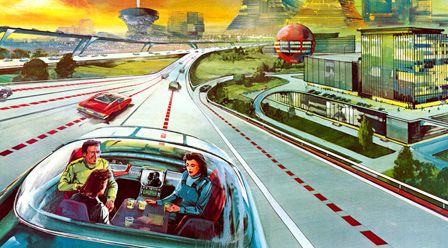In her Guardian column, Jemima Kiss describes driverless cars as a “hard sell for Google,” and I agree with part of her reasoning.
Regulators and entrenched market interests will certainly be a chore to appease. The fallout will be huge, policy-wise, and auto-insurance companies, after all, aren’t not-for-profits and stand to be destabilized out of business. But I think Kiss’ contention that motorist fear of the new technology is overstated. Some may enjoy continuing to drive, but it won’t be because of apprehension about robocars. That worry will quickly abate.
Of course, the bigger point is that Google won’t be alone in trying to change the course of the future, in having automobiles be truly automatic, as Apple, Tesla, Uber, Big Auto and companies in China and Japan will be doing likewise. Google’s biggest challenge will in ensuring it’s one of the companies in the winner’s circle.
An excerpt:
The hard sell for Google will be winning over generations of people who feel safer being in control of their vehicle, don’t know or care enough about the technology, or who simply enjoy driving. Yet most people who try a demo say the same thing: how quickly the self-driving car feels normal, and safe. As the head of public policy quipped, “perhaps we just need to do demos for 7 billion people”. Google’s systems engineer Jaime Waydo helped put self-driving cars on Mars while she worked at Nasa; it may well be that regulation and public policy prove easier there than on Earth.
And before it can get to the public, Google has to get through the regulators. In taking on the auto industry, Google has some mighty pitched battles ahead, not least the radical changes it implies for the insurance industry (who will find the number of accident claims dropping sharply), car makers (who will become partners with Google to equip their autonomous cars) and the labour issues of laying off a whole class of drivers, from cabs to haulage.•
Tags: Jemima Kiss

